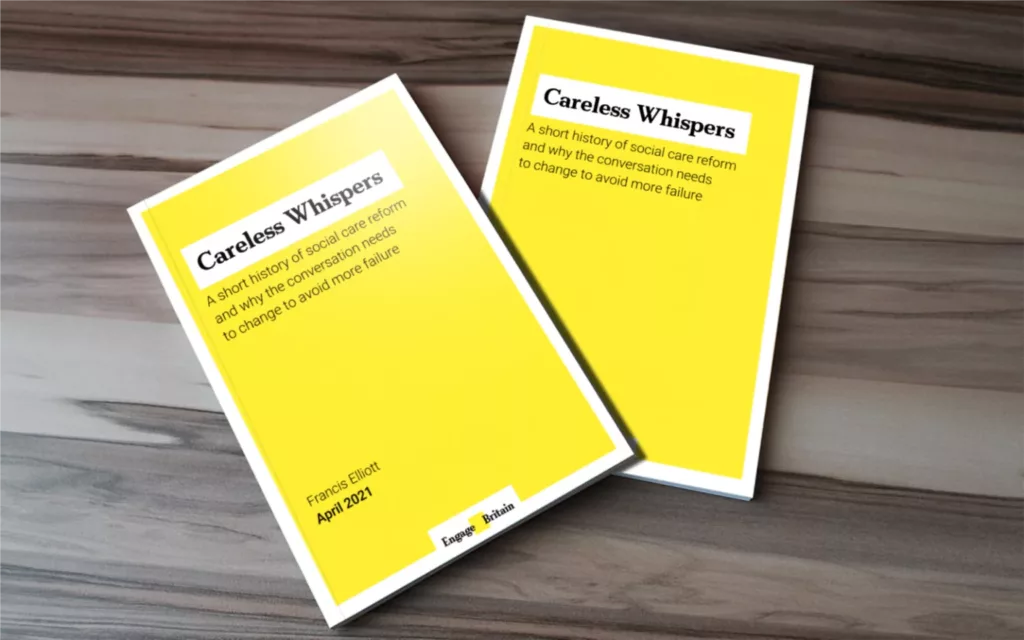No simple remedy for British voters when it comes to in-person GP appointments
Rooting solutions in the experiences people face every day is the only way to fix the problem, writes Francis Elliott.

Britain’s healthcare system, pressured as never before during the pandemic, is emerging into a changed world now that covid starts to retreat.
Tensions are starting to emerge between those who believe that the pandemic drove beneficial change that should sustain. And those who want the NHS to return to business as usual.
The question of whether GPs should offer patients face-to-face consultations, for example, has become hotly contested and a matter of national public debate.
There are significant productivity benefits in retaining high levels of telephone and online consultations. But many patients want to return to seeing their family doctors in person as a matter of course.
Engage Britain commissioned some polling as a first step to exploring a way through this tension, to better understand people’s attitudes to the issue and how they interact with the system as it operates.
The question of whether people should have an automatic right to see their doctor face-to-face splits people evenly down the middle.
Asked who should decide whether a consultation is face-to-face 49% say the GP and 43% say the patient with 8% saying they didn’t know.
Moving to a ‘remote-first’ model of seeing the GP is sometimes presented as part of an inevitable wider cultural shift in which younger people, more familiar with online services, are more comfortable.

The polling does not bear this out, however. The only age group in which a majority believe the patient must decide whether to see the GP face-to-face in the survey was the 35 to 44-year-olds.
The oldest age group, those over 65, were also the most likely to say GPs were best placed to decide while the youngest, those aged between 18 and 24, were in line with the overall total.
One issue may be that patients don’t believe that it is the GP who does decide whether a consultation ought to be face-to-face, however, and become much more resistant if they believe that decision is being taken by non-medical staff.
Asked to rank on a scale of 1 to 10 who they would trust to decide on the nature of a consultation people surveyed gave doctors a score of 8, nurses 7.1, trained operator and call handlers 5.6 and receptionist staff just 3.9.
This suggests that it really matters who does the triage. And if GP practices want to increase their consent for remote consultations, they should reassure patients that it is medically trained rather than administrative staff making that decision.
The last question asked in the Yonder survey suggests another route open to winning people’s consent: convincing patients that they are helping others.
Most people are willing to leave to others to decide the nature of their consultations if convinced that would help those that really needed to see a GP face-to-face more quickly. In that scenario, 57% agree and just 22% disagree (20% don’t know).
This suggests three tentative lessons.
One, there is no simple age dynamic driving peoples’ attitudes to face-to-face consultations. Two, it matters who does the triage. Three, people have strong collectivist instincts in access to healthcare even when it is presented in a consumer frame.
The government needs a nuanced approach based on individual needs when it comes to tackling the problems people struggle with in our GP surgeries.
But it must also recognise that what’s happening with GPs reflects an ever growing problem right across health and care – that millions simply can’t get the services they need when they need them, and in the right way.
Rather than tinkering at the edges, the only way to fix this is by rooting solutions in the experiences real people face every day.
Francis Elliott is Director of Advocacy for Engage Britain.
Read the write up of our survey in iNews
About the polls
- Polls commissioned by Engage Britain and conducted by Yonder
- The fieldwork was conducted 15-17 October, 2021
- A sample of 2,129 adults were polled
The Yonder data tables are available here.
For any analysis queries, please email Alasdair de Costa.
You may also be interested in

Francis Elliott reviews previous attempts and asks – what if the starting point was asking how people experience social care in their day to day lives?… read more

Engage Britain’s recent survey reveals that the NHS unites us in being ‘proud to be British’. But millions face having to go private, fighting for treatment or being dismissed by doctors… read more